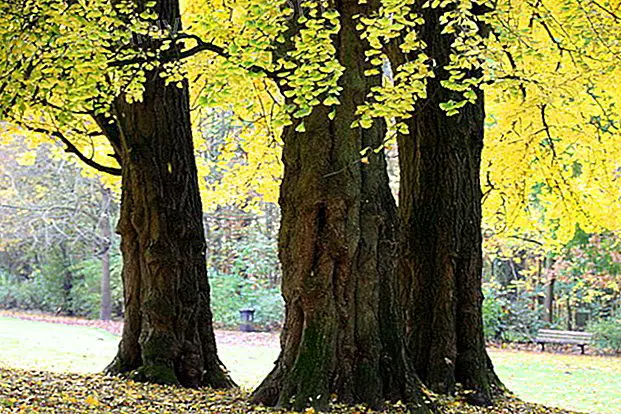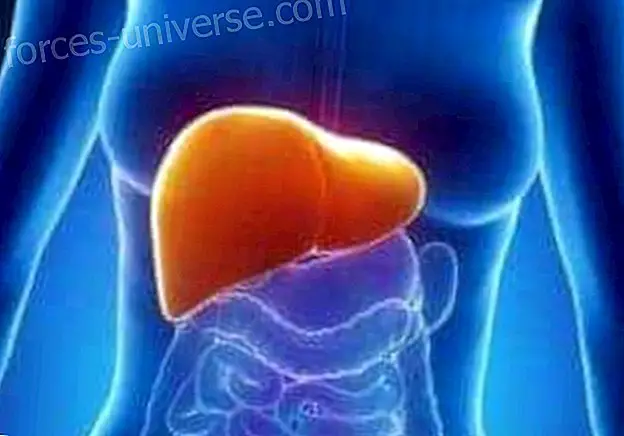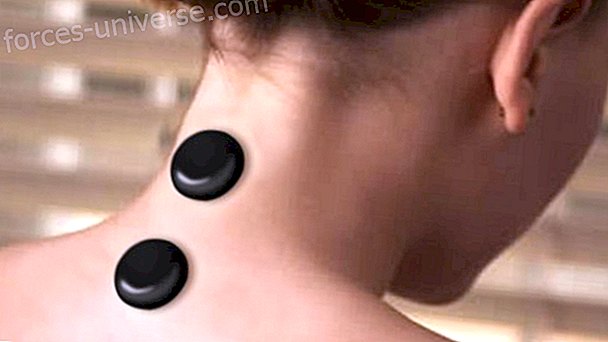Ginkgo biloba, recognized as an enhancer of cognitive faculties, is currently the only living representative of the ginkgoáceas family, a genus of trees that had its peak in the Jurassic about 250 million years ago. Fossil records of at least 11 members of this family are currently known.
It has survived extinctions, glaciations and even the explosion of Hiroshima, first hidden in remote forested redoubts in the interior of Asia, Japan and Korea, then revered and preserved by the ancient Buddhist monks of China.

Knowing that almost all living plants are currently a few million years old, the astonishment of knowing that this contemporary dinosaur is still among us is justifiable. It is no accident that he is known as " the tree of longevity ."
This is in fact the oldest living tree on the planet. It is majestic, deciduous and beautiful in size, so in addition to its known health benefits, which we will describe below, it also has ornamental use. It was part of the imperial gardens of China, adorned the monasteries and the entrance of the pagodas.
The leaves, which are part of the tree with medicinal properties, are very characteristic, deep green and with two lobes - bilobed - which has earned the tree its name.
Ginkgo biloba in traditional Chinese medicine
The ancient Chinese herbalists soon tested the effects of the leaves of this sturdy tree. In a manual called "Edible Herbarium" dating from the thirteenth century, they were already widely recommended for heart and lungs, but even then the benefits of ginkgo were well known, since it has been used for at least 3000 years BC, and surely even before.
Although the medicinal virtues of ginkgo biloba have been manifest since ancient times, after the Second World War they have had a great boom because it is one of the few living beings that managed to survive the atomic bomb .
It is said that a ginkgo biloba frolicked in the vicinity of the Hozenji temple, approximately 1 kilometer from the center of the explosion in Hiroshima. Even today the saplings of that tree are in good health and this is an indication of the strength of their immunity and a remarkable genetics.
These virtues have made researchers wonder what is true in the claims of traditional Chinese medicine on these leaves. Is it possible that people can also take advantage of them for the benefit of their health?
Numerous sources point to the fact that the components of ginkgo biloba leaves have neuroprotective qualities.

And they are not only beneficial for middle-aged people who seek to prevent deterioration associated with age. Students at the time of examinations and those who seek to increase their intellectual performance turn to this remarkable plant which is assured as effective as a brain oxygenator .
Where do ginkgo biloba leaf properties come from?
Plants are living beings and evolution has given them defense mechanisms against their enemies, as it has done with animals. Among these is the production of chemical substances that the plant synthesizes to protect against insects, pests, adverse environmental conditions and also to compete with other plants and facilitate reproduction.
The substances that plants create are very numerous, ranging from sugars to vitamins, through coloring substances and much more. They use the minerals present in soils in the elaboration of nutrients.
It is known through experimentation and studies that people can take advantage of these substances. And not just as simple food. Given the history of longevity of ginkgo biloba, whatever this resistant tree produces should be very effective.
Since 1950, scientists have found more than 40 compounds in ginkgo leaves, but determined that those with potential health effects are ginkgolides and bilobalide.
In addition, the leaves contain flavonoids, highly beneficial substances to neutralize the effects of free radicals and improve circulation.
In the composition of ginkgo biloba leaf extract are present:
- Ginkg lids A, B and C
- Bilobalide
And flavonoids:
- Isorhamnetina
- Quercetin (onion and apples are also rich in this compound).
- Kaempferol
Flavonoids have a well-deserved reputation as antioxidants, substances that fight free radicals, chemical compounds that are believed to be responsible in part for the aging process in living things.
What can ginkgo biloba do for health?
These are the uses that have traditionally been given to ginkgo biloba extract:
- Improve memory and enhance cognitive faculties .
- Prevent cognitive impairment associated with age.
- Stimulate blood supply.
- It is platelet antiaggregant, so it prevents clots.
- Fight intermittent claudication.
- Relieve the symptoms of various dementias, at least in the beginning.
- Act against cancer cells.
- Mitigate the feeling of vertigo.
- Prevent varicose veins.
- Relieve ringing in the ears - tinnitus or tinnitus -.
- Eye protector.
- Fight cold hands and feet.
These recommendations are well-founded, since the active compounds of ginkgo biloba improve blood circulation, thus promoting cerebral oxygenation, helping nutrients to reach cells more efficiently. Better blood supply prevents varicose veins and is certainly good for eliminating the feeling of cold hands and feet.
Some studies done
A study conducted in healthy volunteers between 50 and 65 years of age in 2003 and lasting 4 weeks, concluded that motor function and emotional evaluation had improved in the group that consumed standardized extract of ginkgo biloba, compared to the control group. And very important: with the dose used, no harmful side effects were found in consumers.
Other studies released in The Journal Of Alzheimer's Disease noted the effectiveness of a daily dose of 240 mg of ginkgo biloba extract in improving cognitive functions in people with Alzheimer's.
Flavonoids in their role as antioxidants act at the tissue level, helping to maintain their flexibility and functions. In that case it is very likely that ginkgo is indeed effective in keeping cells healthy in various organs, including those in the brain.
If you wonder how it is possible that these compounds benefit health in this way, the answer is that the mechanisms of action of these and many other substances, including synthetic drugs, are not yet known exactly.
And is that knowing all the routes of the body is not an easy task. Life is complex and amazing. The truth is that there is evidence that the human brain responds positively to these compounds, and that is important for people.
How to make the most of your benefits?
The first is where to find ginkgo biloba leaves. The extract, as well as tinctures and dried leaves are sold in herbalists. There are also pharmaceutical preparations with ginkgo biloba leaf extract, alone or in combination with other natural components, in the form of tincture or capsules.
As for the dose, it is highly advisable to consult with the pharmacist or trusted doctor, even when commercial preparations are sold without a prescription (OTC).
The dosage of medicinal plants is sometimes not clearly established, since they are dependent on the type of preparation to be used. The proportions of the active ingredients could be different even in leaves of the same tree, since they depend on factors such as the time of the year, the climatic conditions, the state of the soils and much more.
Processed products also differ in composition since the preparation method used by each manufacturer can be very different. To minimize such variability, good quality products contain standardized extracts, in which a fixed percentage of each of the active compounds is maintained. The label must be carefully examined and the product indications read.
Preparing the infusion of ginkgo biloba leaves
If instead of a commercial preparation you choose to consume in infusions, it should be emphasized that the benefits come with regular consumption.

The same goes for most medicinal plants, their effects are never as rapid as those of synthetic medicines, but in return they can be more durable and in many cases produce few side effects.
To prepare the infusion you need:
- 20 grams of dried ginkgo biloba leaves
- 1 liter of water
- Honey or sweetener to taste
The leaves are poured when the water is boiling, and it is allowed to boil covered for another 5 minutes, after which the preparation is allowed to stand for at least 10 minutes before tasting it.
Side effects and contraindications
Some people are more sensitive than others and there are those who claim to feel gastrointestinal discomfort and headaches, especially at high doses. There are also those that are definitely allergic to ginkgolide compounds and for this reason they will do well to avoid them.
Ginkgo biloba seeds are toxic when consumed in large quantities and side effects range from arrhythmia to shortness of breath.
Luckily it is unlikely to get intoxicated in this way, although of course the natural curiosity of people has led them to taste the seeds. At some time they were considered as food, despite the inconvenience that probably caused their consumers.
For most herbal infusions about 3 cups a day is a good recommendation for benefits, and it is definitely advisable not to exceed 5 cups. Of course, if you feel unwell, you should see a doctor immediately.
For varicose veins there are commercial preparations for topical use such as gels and creams. In this case they should be used according to the leaflet and if they cause irritation or damage to the skin, refrain from using them.
Pregnant and breastfeeding women should consult their doctor if they want to take any type of drug, even if it is based on natural elements. It is also a valid recommendation for infusions, although there are not so many restrictions on food. Still it is better to make sure with the help of the specialist.
The world of medicinal plants is broad and science still has much to learn. There is still much to investigate and the results of the studies are still not completely conclusive.
What is certain is that the plants have been part of the ancestral wisdom of all peoples and with well-founded reasons, because in nature there is the key to the harmony of the body and the mind.
AUTHOR : Fanny Zapata, editor in the big family of hermandadblanca.org
References:
- Cieza, A. 2003. Effects of Ginkgo biloba on mental functioning in healthy volunteers. Recovered from: ncbi.nlm.nih.gov.
- How To Use Ginkgo Biloba, Ginkgo Biloba Tea. Recovered from: plantshospital.com.
- Ginkgo Biloba Extract (Gbe). Recovered from: ginkgo.dm.pagesperso-orange.fr.
.






